Are you planning to buy a house in Singapore? It’s an exciting prospect but can also be a daunting one, especially when it comes to financial planning. How much cash should you have to buy a house in Singapore? This is a common question that many prospective homebuyers have, and the answer may surprise you.

Understanding the basics of buying a house in Singapore is important before you dive into financial considerations and planning. The role of Central Provident Fund (CPF) in home buying, calculating costs and fees, navigating the property market, legal and regulatory considerations, securing a mortgage, and the buying process in Singapore are all important factors to consider. In this article, we will explore the financial aspects of buying a house in Singapore and provide you with some key takeaways to help you get started.
Key Takeaways
- The cost of buying a house in Singapore depends on various factors such as the type and age of the property, location, and condition of the unit.
- You should have enough cash for about 20% to 30% of the purchase price to pay for down payments and any legal/processing fees that arise at the start of the transaction.
- The Central Provident Fund (CPF) can be used to pay for part of the down payment and monthly mortgage payments, subject to certain conditions.
Understanding the Basics of Buying a House in Singapore
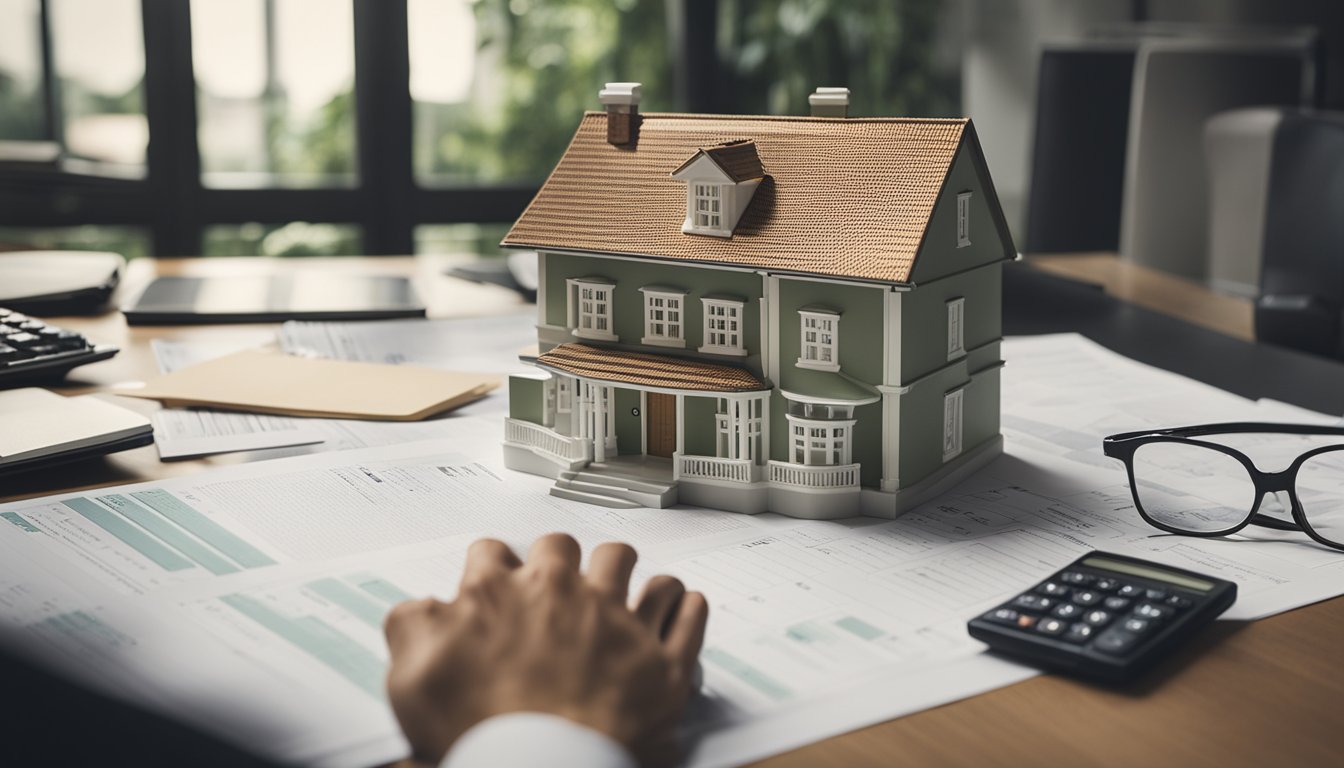
Buying a house is a big decision, and it can be overwhelming to navigate the process. However, with the right information and guidance, it can be a smooth and exciting experience. In this section, we will cover the basics of buying a house in Singapore, including the types of housing available and the eligibility criteria for purchasing property.
Types of Housing Available
There are several types of housing available in Singapore, including public housing, executive condominiums (ECs), and private residential properties. Public housing, also known as Housing and Development Board (HDB) flats, are subsidized by the government and are available for purchase by Singaporeans, Permanent Residents (PRs), and foreigners who meet certain eligibility criteria. ECs are a hybrid of public and private housing, and are available for purchase by Singaporeans and PRs who meet certain income and eligibility criteria. Private residential properties, such as condominiums, landed properties, and apartments, are available for purchase by Singaporeans, PRs, and foreigners.
Eligibility Criteria for Purchasing Property
The eligibility criteria for purchasing property in Singapore varies depending on the type of housing you are interested in. For public housing, you must be a Singaporean citizen, a PR, or a foreigner who is eligible to purchase under the Non-Citizen Spouse Scheme or the Joint Singles Scheme. You must also meet certain income and ownership criteria. For ECs, you must be a Singaporean citizen or a PR who meets certain income and eligibility criteria. For private residential properties, there are no restrictions on ownership by Singaporeans and PRs. However, foreigners are subject to certain restrictions and must seek approval from the Land Dealings Approval Unit before purchasing property.
In summary, buying a house in Singapore can be an exciting and rewarding experience. Understanding the types of housing available and the eligibility criteria for purchasing property is an important first step in the process. Whether you are interested in public housing, ECs, or private residential properties, there are options available for Singaporeans, PRs, and foreigners.
Financial Considerations and Planning
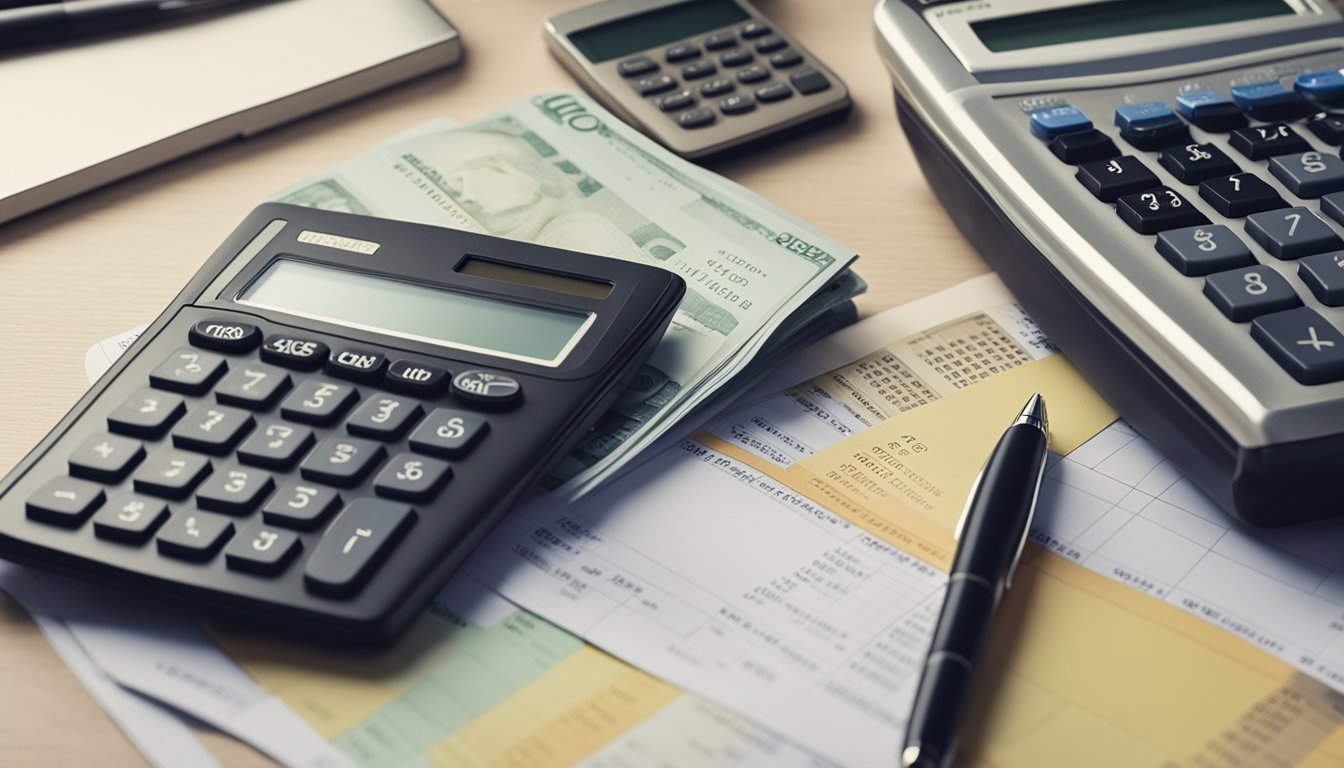
If you’re looking to buy a house in Singapore, it’s important to assess your financial health to determine how much cash you’ll need for the purchase. Here are some financial considerations and planning tips to help you budget for your home purchase.
Assessing Your Financial Health
Before you start looking at properties, it’s important to assess your financial health. This includes calculating your monthly expenses, income, and savings. You should also check your credit score and ensure that you have a stable source of income.
Budgeting for Your Home Purchase
Once you’ve assessed your financial health, you can start budgeting for your home purchase. This includes understanding the costs associated with buying a property, such as legal fees, stamp duties, and maintenance fees. You should also factor in the downpayment, which is typically 15% to 25% of the property price, as well as any Cash Over Valuation (COV) and other costs.
Understanding Loans and Mortgages
If you don’t have enough cash to pay for the property upfront, you may need to take out a bank loan, HDB loan, or home loan. It’s important to understand the different types of loans and mortgages available, as well as the interest rates and repayment terms. You should also consider your Total Debt Servicing Ratio (TDSR) and ensure that you can afford the monthly repayments.
When planning your finances, it’s important to consider recurring costs such as property tax, insurance, and maintenance fees. You should also factor in your CPF savings and salary to determine your affordability. Finally, it’s important to work with a financial planner or mortgage broker to ensure that you’re making the right financial decisions for your situation.
By taking the time to assess your financial health, budget for your home purchase, and understand loans and mortgages, you can ensure that you have enough cash to buy a house in Singapore.
The Role of Central Provident Fund (CPF) in Home Buying

If you are planning to buy a house in Singapore, you might be wondering how much cash you need to have to make the purchase. One important factor to consider is the role of Central Provident Fund (CPF) in home buying.
Using CPF Savings for Purchase
CPF is a savings scheme in Singapore that aims to help individuals save for their retirement, healthcare, and housing needs. As a Singaporean citizen or permanent resident, you can use your CPF savings to buy a home. The amount of CPF savings you can use for your property purchase depends on various factors such as your age, the remaining lease of the property, and the type of property you are buying.
You can use your Ordinary Account (OA) savings to pay for the downpayment, monthly mortgage installments, and other related costs such as stamp duty and legal fees. The amount of CPF savings you can use for your property purchase is subject to a withdrawal limit, which is based on the Valuation Limit (VL) of the property and the remaining balance in your OA.
CPF Housing Grants and Limitations
Apart from using your CPF savings, you can also apply for CPF Housing Grants to help you with your home purchase. The grants are available for first-time buyers who meet certain eligibility criteria such as income and citizenship status. The amount of CPF Housing Grants you can receive depends on various factors such as your income, the type of property you are buying, and the remaining lease of the property.
It is important to note that there are certain limitations when it comes to using your CPF savings for home buying. For example, if you use your CPF savings to buy a property, you will not be able to use it for other purposes such as education, investment, or healthcare. Additionally, if you are using your CPF savings to buy a property with a remaining lease of less than 60 years, you will need to set aside a certain amount of money in your CPF account to meet the Minimum Sum requirement.
In conclusion, CPF plays a crucial role in home buying in Singapore. By using your CPF savings and applying for CPF Housing Grants, you can make your home purchase more affordable and manageable. However, it is important to understand the limitations and withdrawal limits associated with using your CPF savings for home buying.
Calculating Costs and Fees

Buying a house is a big financial decision, and it is important to understand the costs and fees involved before making the purchase. Here is a breakdown of the costs and fees you need to consider when buying a house in Singapore.
Initial Costs and Down Payments
The initial costs of buying a house in Singapore include the down payment, which is usually 20% of the purchase price. For example, if you are buying a house for $1 million, you will need to make a down payment of $200,000. You will also need to pay for other fees such as legal fees, stamp duty, and valuation fees. These fees can add up to several thousand dollars, so it is important to budget for them.
Recurring and Hidden Expenses
Once you have bought a house, there are recurring and hidden expenses that you need to budget for. These expenses include property tax, conservancy charges, and maintenance fees. Property tax is calculated based on the annual value of your property and can range from 0.4% to 10% of the annual value. Conservancy charges are fees charged by the town council for the maintenance of common areas such as lifts and corridors. Maintenance fees are fees charged by the management corporation for the maintenance of the building and facilities.
In addition to these expenses, you should also consider getting home insurance. Home insurance protects your property against damage or loss due to fire, theft, or other unforeseen events. The cost of home insurance varies depending on the coverage and the value of your property.
It is important to budget for all of these expenses when buying a house in Singapore. Make sure you understand the costs and fees involved so that you can make an informed decision and avoid any surprises down the road.
Navigating the Property Market
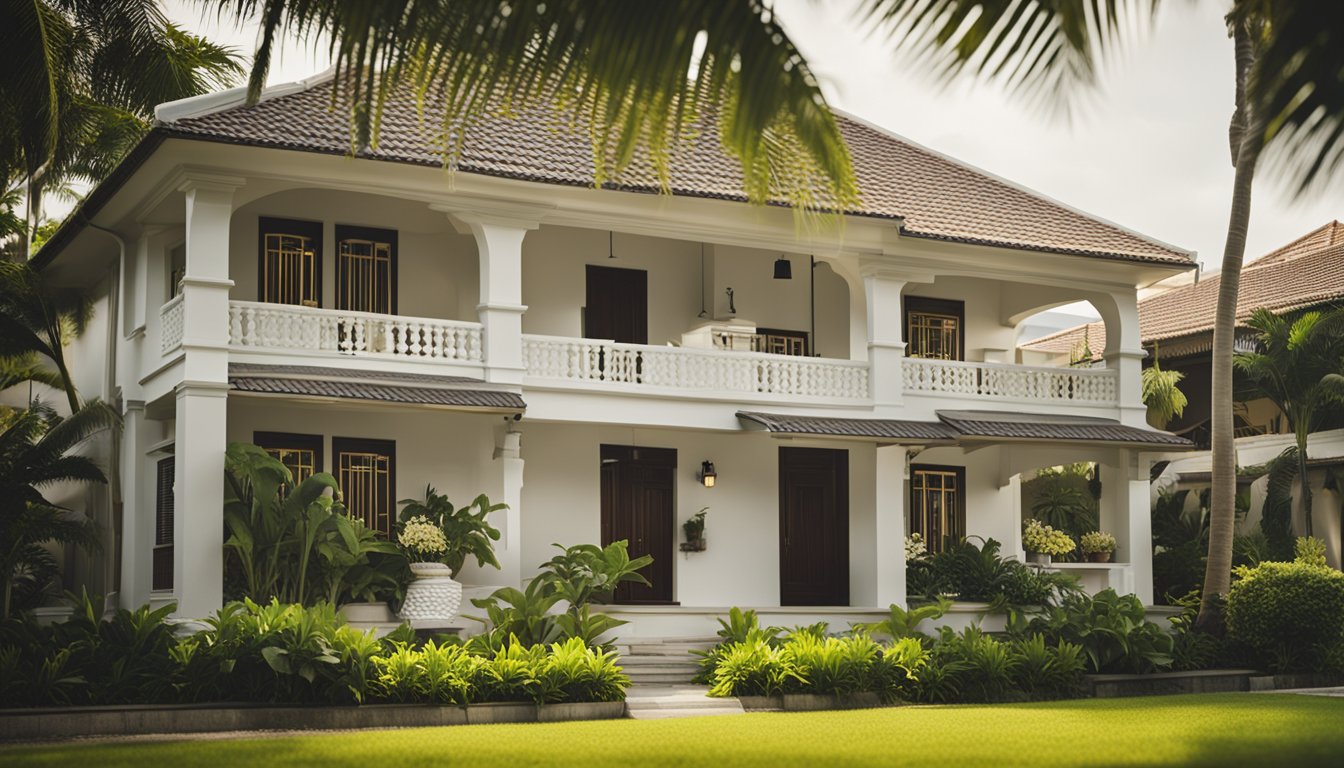
Buying a property in Singapore can be an exciting experience, but it can also be overwhelming. With so many properties available for purchase, it can be challenging to know where to start. Here are some tips to help you navigate the property market and find the right property for you.
Choosing the Right Location
One of the most important factors to consider when buying a property in Singapore is the location. Different areas of Singapore offer different benefits, and it’s essential to choose the right location for your needs. For example, if you’re looking for a resale HDB flat, you might want to consider areas like Geylang, which offer a wide range of properties at affordable prices. On the other hand, if you’re looking for a landed property, you might want to consider areas like Sentosa Cove, which has some of the most exclusive properties in Singapore.
Assessing Property Conditions and Values
Another crucial factor to consider when buying a property in Singapore is the condition and value of the property. It’s important to assess the property thoroughly before making an offer to ensure you’re getting a good deal. For example, if you’re buying an HDB resale flat, you should check the COV (Cash Over Valuation) to make sure you’re not overpaying for the property. Similarly, if you’re buying a private property, you should assess the condition of the property to ensure it’s worth the asking price.
Overall, buying a property in Singapore requires careful consideration and research. By choosing the right location and assessing the property’s condition and value, you can find the right property for your needs.
Legal and Regulatory Considerations
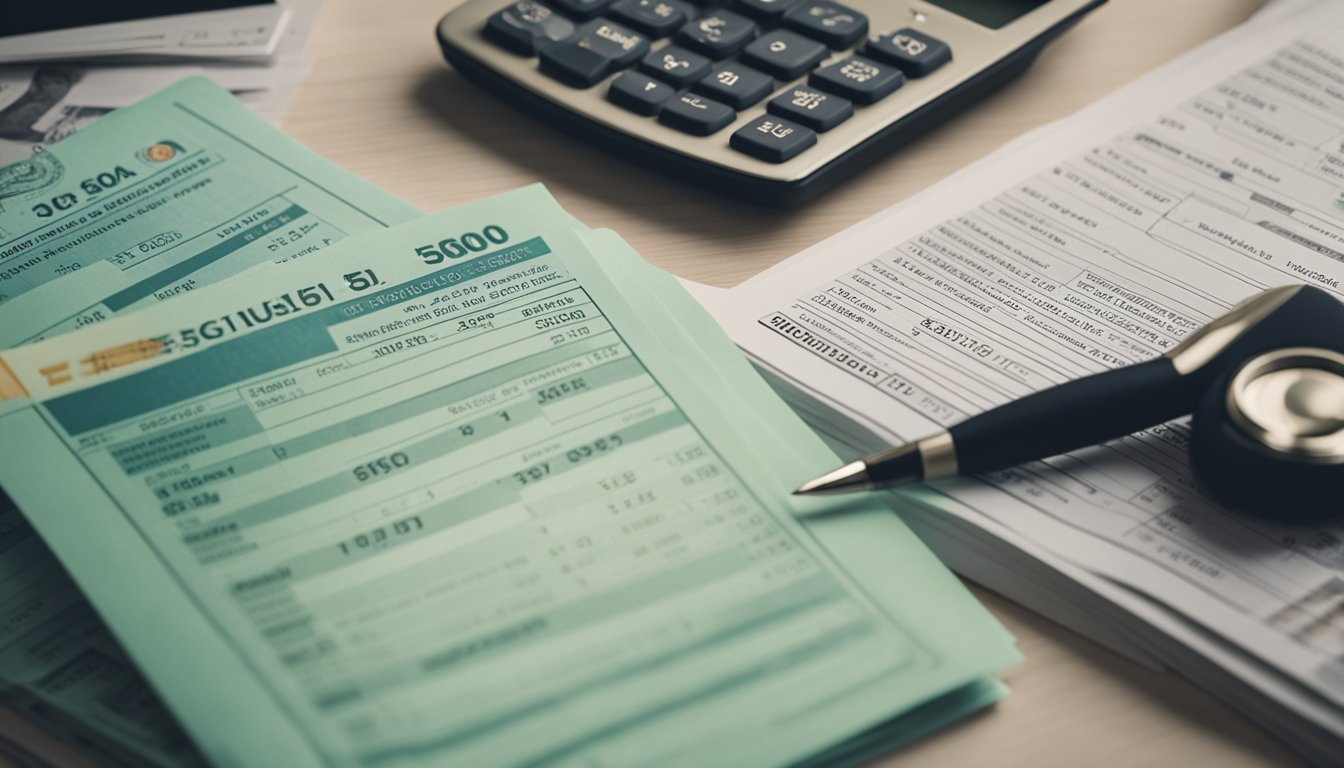
If you are planning to buy a house in Singapore, there are several legal and regulatory considerations that you need to keep in mind. Understanding these regulations can help you avoid any potential pitfalls and make a well-informed decision.
Understanding Stamp Duties and Taxes
When you buy a property in Singapore, you need to pay stamp duty, which is a tax on the transfer of property ownership. The stamp duty rates vary depending on the type of property you are buying and whether you are a Singapore citizen, Permanent Resident (PR), or foreigner. You can use the Inland Revenue Authority of Singapore (IRAS) stamp duty calculator to estimate the amount of stamp duty you need to pay.
In addition to stamp duty, you also need to pay property tax, which is a tax on the property you own. The property tax rates in Singapore are progressive, which means that the more valuable your property is, the higher the tax rate you need to pay.
Navigating Housing Policies and Restrictions
The Singapore government has implemented various housing policies and restrictions to ensure that the property market remains stable and affordable for Singaporeans. One of these policies is the Additional Buyer’s Stamp Duty (ABSD), which is a tax on top of the standard stamp duty that applies to certain categories of buyers. The ABSD rates vary depending on the number of properties you own and your residency status.
Another policy is the property cooling measures, which are a set of measures aimed at preventing the property market from overheating. These measures include loan-to-value (LTV) limits, which restrict the amount of money you can borrow to purchase a property, and the Total Debt Servicing Ratio (TDSR), which limits the amount of your income that can be used to service your property loan.
Eligibility criteria also play a crucial role in buying a house in Singapore. For example, if you are a Singapore citizen, you can buy a Housing and Development Board (HDB) flat, but you need to meet certain eligibility criteria, such as the minimum occupation period (MOP) and the family nucleus requirements. If you are a foreigner, you can buy private property, but you need to obtain approval from the Singapore Land Authority (SLA) and meet certain eligibility criteria.
In conclusion, buying a house in Singapore involves several legal and regulatory considerations that you need to be aware of. By understanding these regulations and policies, you can make an informed decision and avoid any potential pitfalls.
Securing a Mortgage
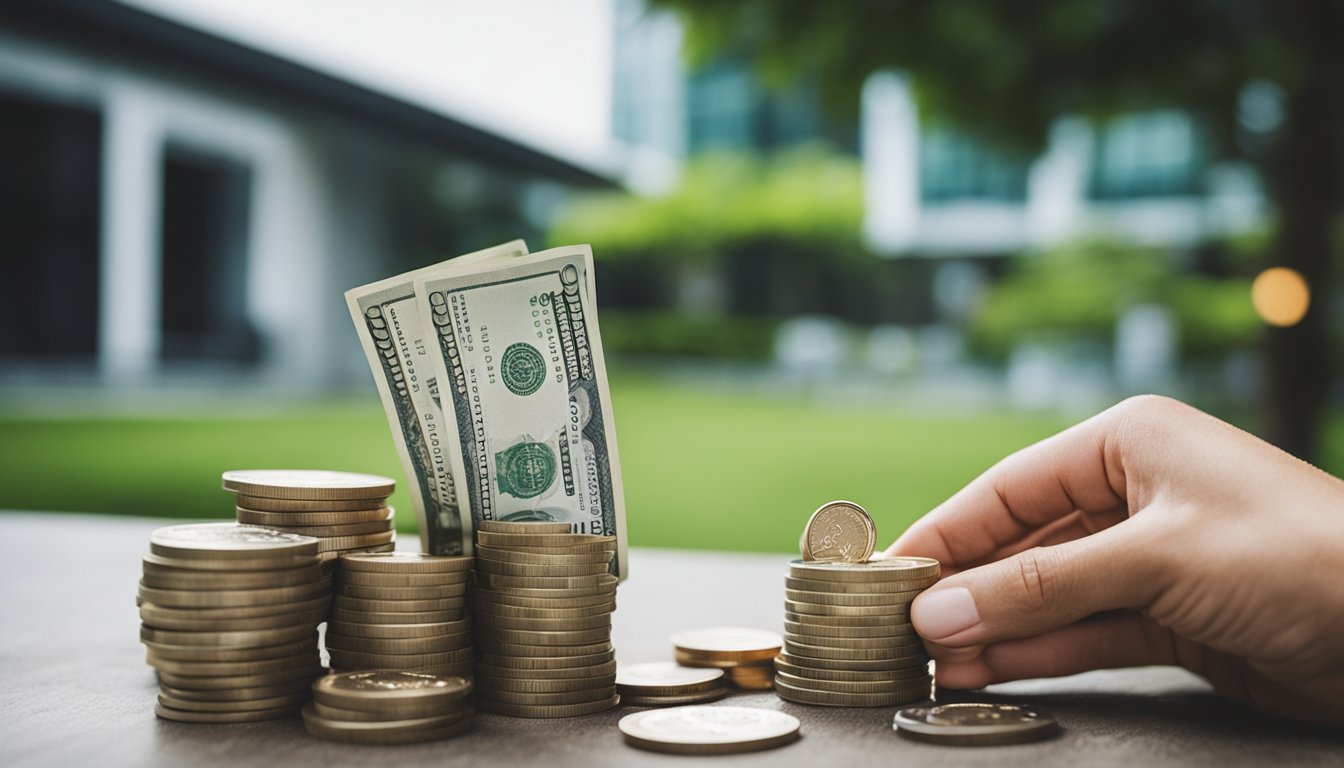
Getting a mortgage is a crucial step towards buying your dream home in Singapore. It is important to choose the right bank and loan package that suits your financial needs. Here are some factors to consider when securing a mortgage:
Choosing the Right Bank and Loan
When choosing a bank for your mortgage, you may want to consider factors such as interest rates, loan tenure, and the total debt servicing ratio (TDSR). You can compare the different loan packages offered by banks to find the one that suits you best. Some banks offer private bank loans, while others offer HDB loans or home loans.
Calculating Interest Rates and Loan Tenure
Interest rates and loan tenure are important factors to consider when securing a mortgage. The interest rate determines how much you will pay in mortgage repayments each month, while the loan tenure determines how long it will take to repay the mortgage. You can use a mortgage calculator to estimate your monthly repayments based on the interest rate and loan tenure.
It is important to note that the loan-to-value (LTV) limit in Singapore is 75% for HDB flats and 80% for private properties. This means that you will need to pay at least 20% of the property price in cash and/or CPF savings. Additionally, the TDSR limits the amount of your income that can be used to repay loans. The TDSR is currently set at 60% for all property loans.
When choosing a mortgage package, you can opt for a fixed rate or floating rate loan. Fixed rate loans offer a stable interest rate for a fixed period of time, while floating rate loans have an interest rate that fluctuates according to market conditions.
Overall, securing a mortgage can be a complex process, but with the right information and guidance, you can make an informed decision that will help you achieve your goal of owning a home in Singapore.
The Buying Process in Singapore

Are you excited to buy a house in Singapore? The buying process in Singapore can be quite straightforward if you know what to expect. Here are the steps to purchase your home:
Steps to Purchase Your Home
- Determine your budget: Before you start looking for a property, you need to determine how much cash you have to buy a house in Singapore. You should also consider getting a pre-approved loan from a bank to help you with your budgeting.
- Find a property: Once you have a budget in mind, you can start looking for a property that meets your needs. You can search for properties online, or you can engage a property agent to help you find your dream home.
- View the property: After you have shortlisted a few properties, you should arrange to view them. This will give you a better idea of the condition of the property and whether it meets your requirements.
- Make an offer: If you have found a property that you like, you can make an offer for it. You will need to pay a deposit of 1% of the purchase price when you make the offer.
- Exercise the Option to Purchase (OTP): Once the seller accepts your offer, you will need to exercise the OTP by paying the balance of the deposit (4% of the purchase price) and signing the OTP within 14 days.
- Finalise the paperwork: After you have exercised the OTP, you will need to finalise the paperwork for the purchase. This includes engaging a lawyer to handle the conveyancing and arranging for a valuation of the property.
Finalising the Deal and Moving In
Once you have finalised the paperwork, you will need to pay the remaining purchase price and stamp duty. The stamp duty is a tax that you need to pay when you buy a property in Singapore. The amount of stamp duty you need to pay depends on the purchase price of the property.
After you have paid the purchase price and stamp duty, you can collect the keys to your new home and move in. Congratulations, you are now a proud owner of a property in Singapore!
Whether you are buying a BTO flat, an HDB resale unit, or a private property, the buying process in Singapore can be a smooth and exciting journey if you follow these steps.
Frequently Asked Questions
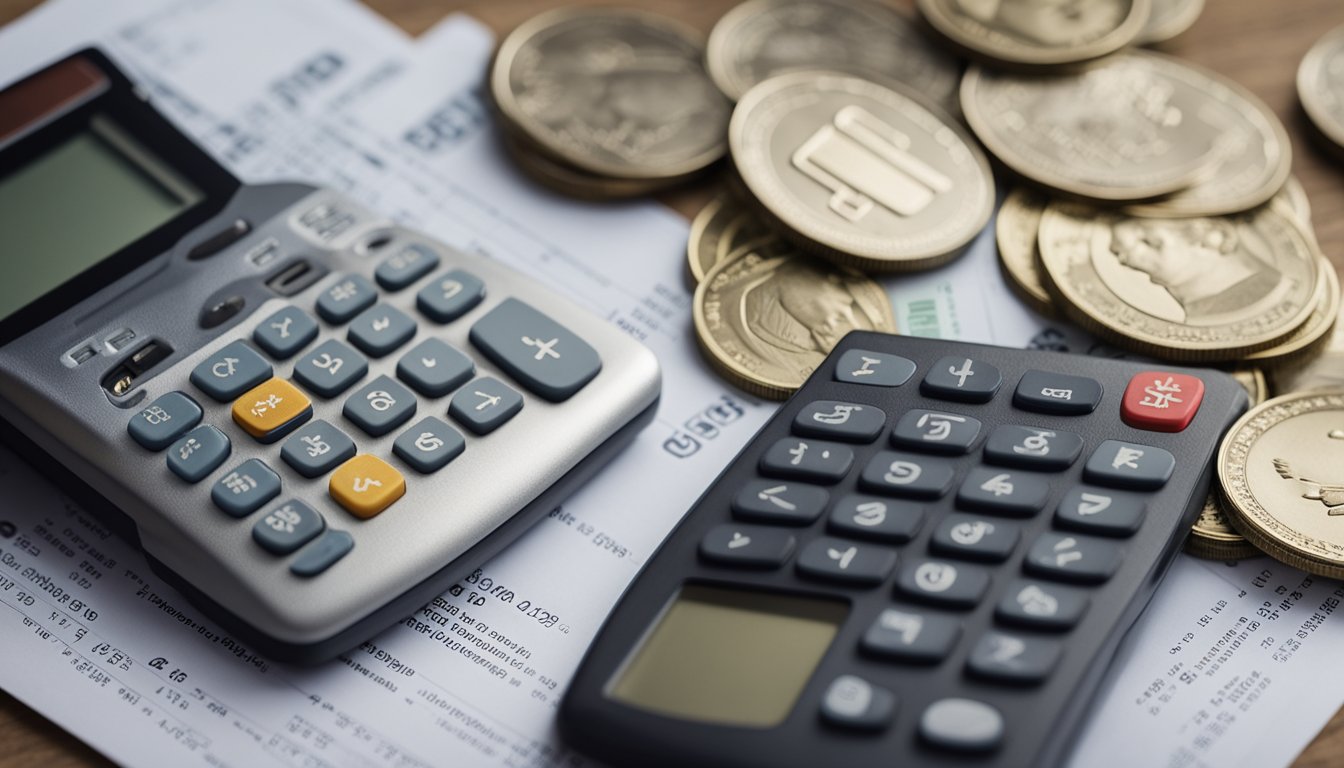
What’s the initial deposit required for a home purchase in Singapore?
When purchasing a property in Singapore, you’ll need to pay an initial deposit to secure the property. For private properties, this deposit is usually 5% to 10% of the purchase price, while for HDB flats, it’s 1% to 5% of the purchase price. This deposit is usually paid in cash or cashier’s order and is non-refundable.
Can you tell me the average cost for a condominium in Singapore?
The cost of a condominium in Singapore can vary greatly depending on the location, size, and age of the property. However, as of 2024, the average cost for a condominium in Singapore is around SGD 1.5 million. Keep in mind that this is just an average, and prices can be much higher or lower depending on the factors mentioned above.
Just how much of my CPF funds can be used for a condo down payment?
If you’re a first-time homebuyer, you can use up to 25% of your CPF Ordinary Account (OA) savings to pay for the down payment and monthly mortgage instalments for your property. For subsequent property purchases, the percentage decreases to 15%. However, keep in mind that there are also limits to the amount you can withdraw, and you’ll need to have sufficient funds in your CPF OA to cover the remaining payments.
What’s the minimum cash outlay for a resale HDB flat?
The minimum cash outlay for a resale HDB flat is SGD 2. For a 4-room resale flat, the minimum cash outlay would be around SGD 20,000, while for a 5-room resale flat, it would be around SGD 30,000. Keep in mind that this is just the minimum amount required, and you may need to pay more depending on the purchase price of the flat.
Could you enlighten me on the total upfront cost involved in acquiring property in Singapore?
When acquiring property in Singapore, you’ll need to pay a number of upfront costs in addition to the initial deposit. These costs can include stamp duty, legal fees, and property tax. The total cost can vary depending on the type and value of the property, but it’s important to budget for these costs in addition to the purchase price.
What should be my savings goal to comfortably buy a property in Singapore?
Your savings goal will depend on a number of factors, including the type and location of the property you’re interested in, your income, and your lifestyle. However, as a general rule of thumb, it’s recommended that you have at least 20% of the purchase price of the property saved up for the initial deposit and other upfront costs. Additionally, you should have a stable income and be able to comfortably afford the monthly mortgage payments.

